Journal Entry: Professional Communication in Healthcare Setting
VerifiedAdded on 2022/08/30
|6
|932
|24
Journal and Reflective Writing
AI Summary
This journal entry explores key aspects of professional communication within a healthcare context. The first journal entry focuses on the use of reflective responses in crisis situations, emphasizing the importance of active listening, understanding, and empathy in building trust and resolving conflicts. The second journal entry addresses conveying respect to remove communication barriers among health professionals, highlighting the significance of cultural sensitivity, attentiveness, and maintaining professional boundaries to foster effective collaboration. The author provides practical strategies for showing respect, such as avoiding distractions, acknowledging cultural differences, and valuing others' time and personal space. References from academic sources support the discussion, providing a framework for understanding and improving communication skills in healthcare environments. This is a great resource for anyone looking to improve their professional communication skills in a healthcare setting and is available on Desklib, along with other educational resources.
1 out of 6
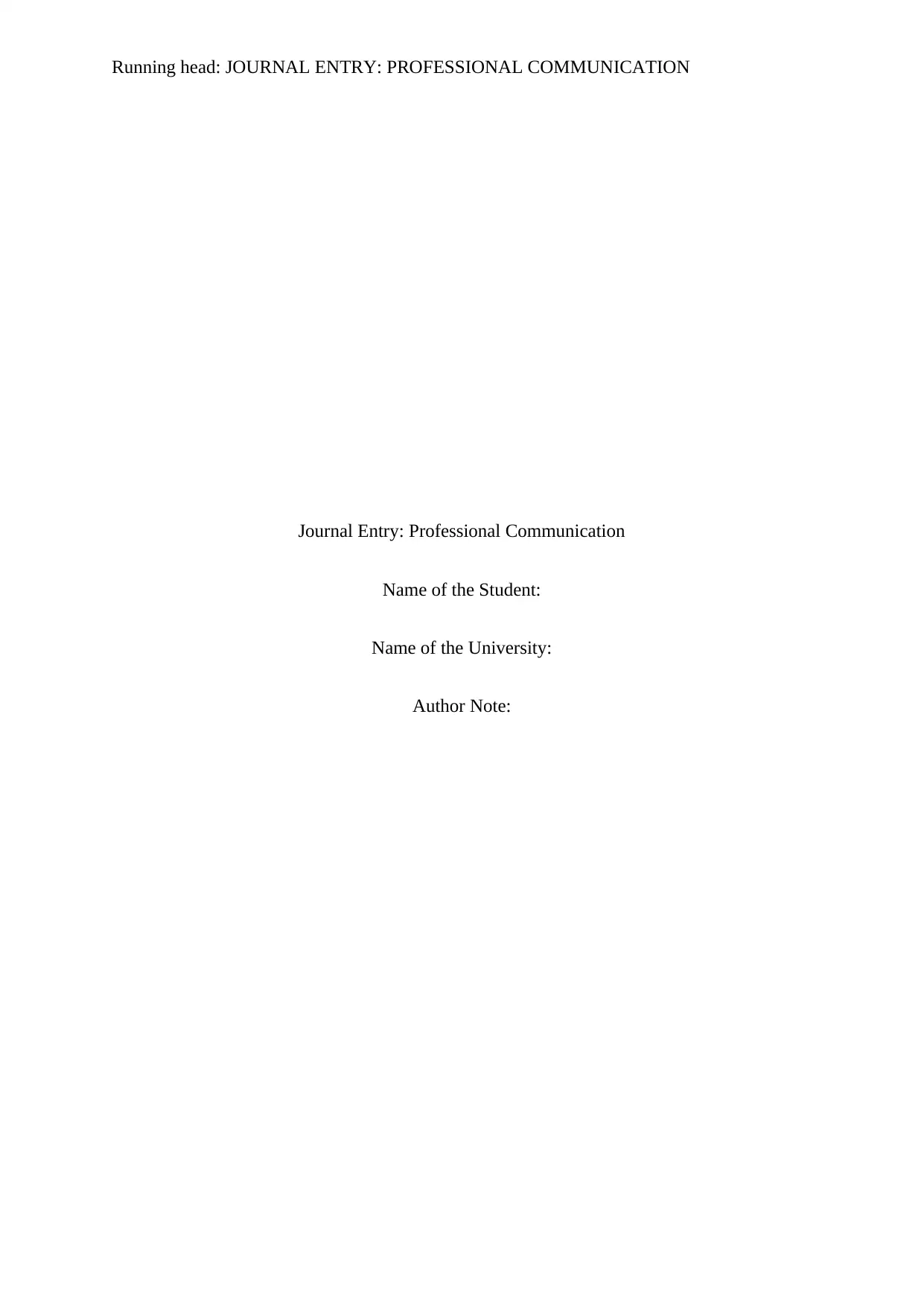
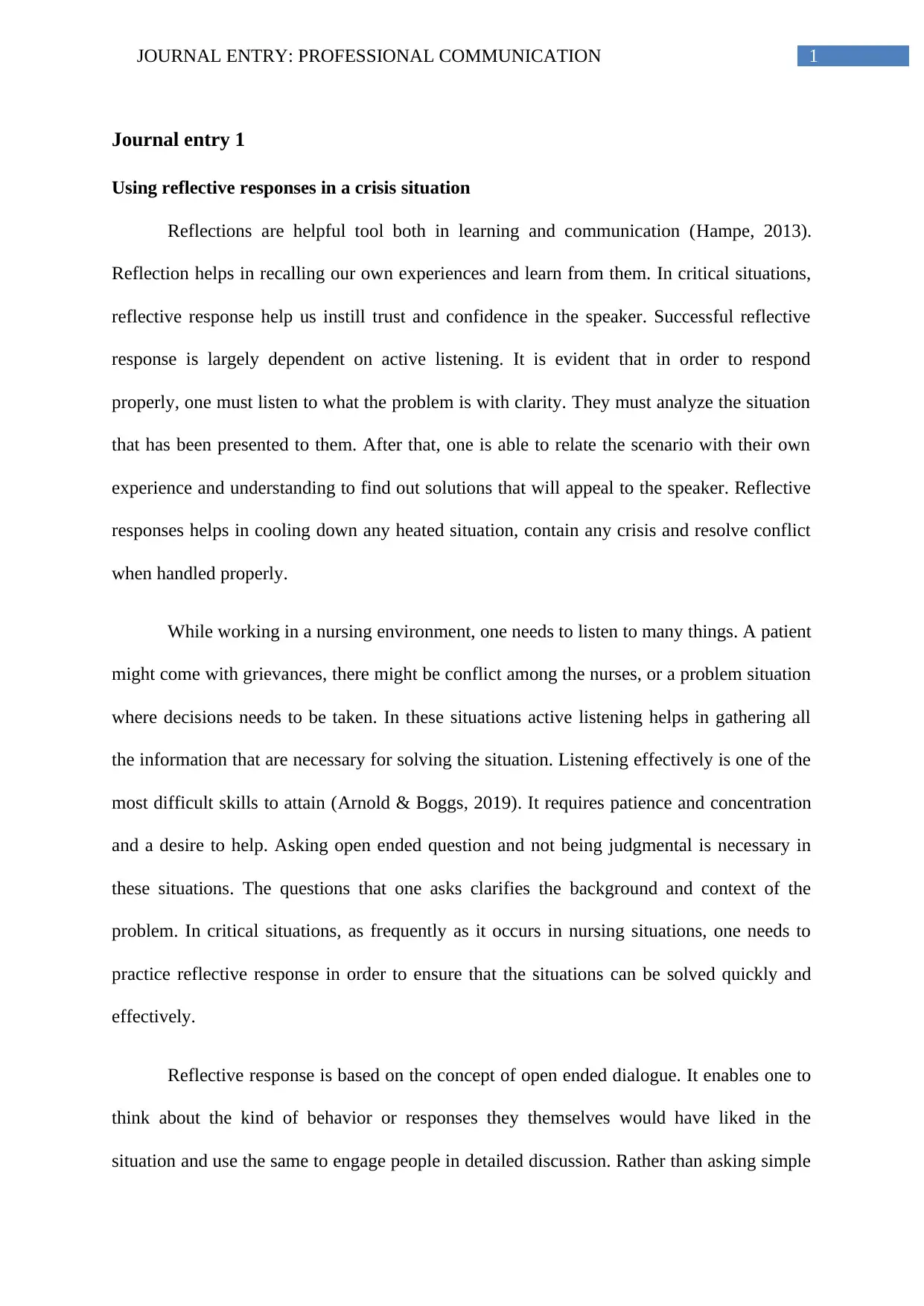
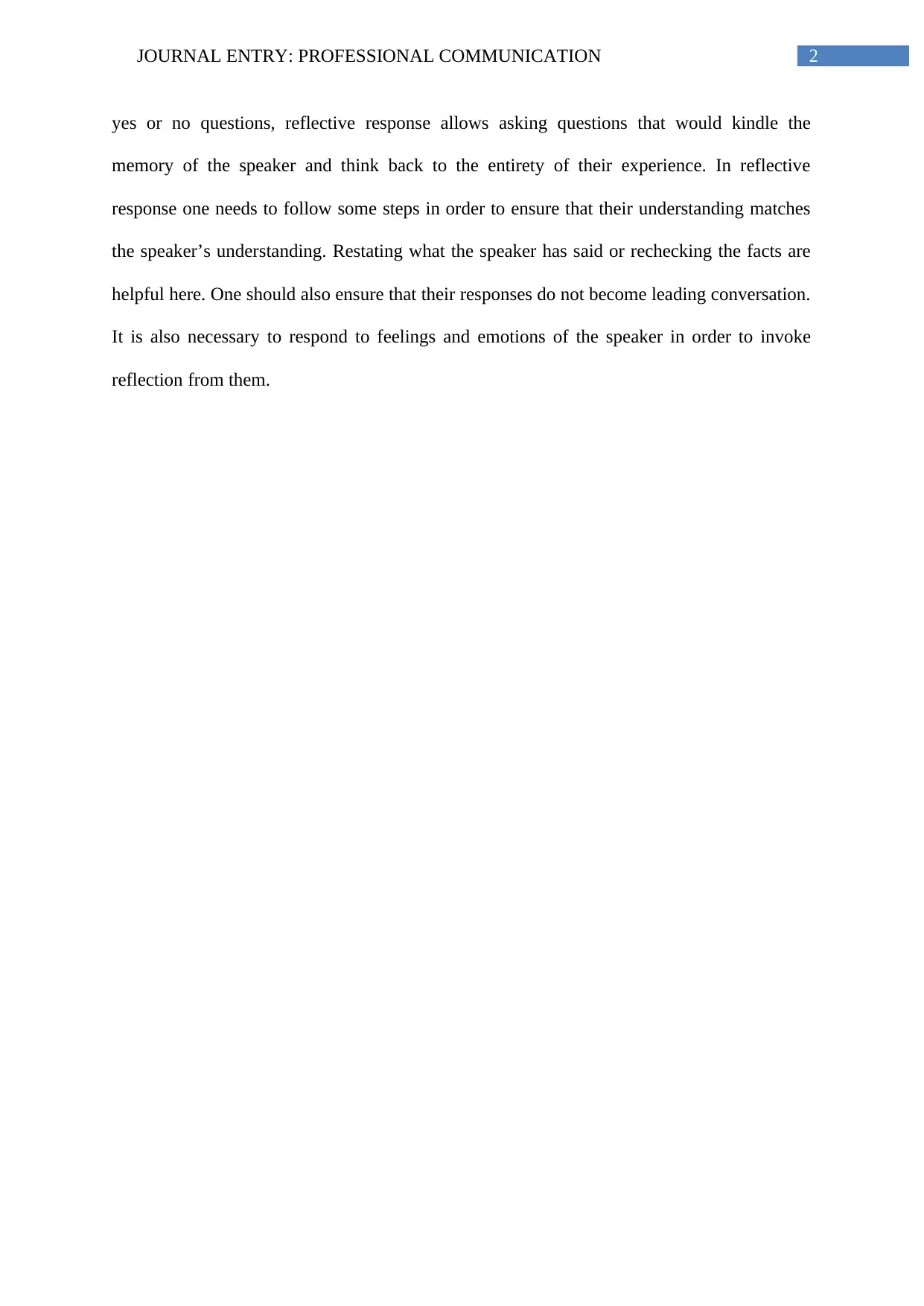

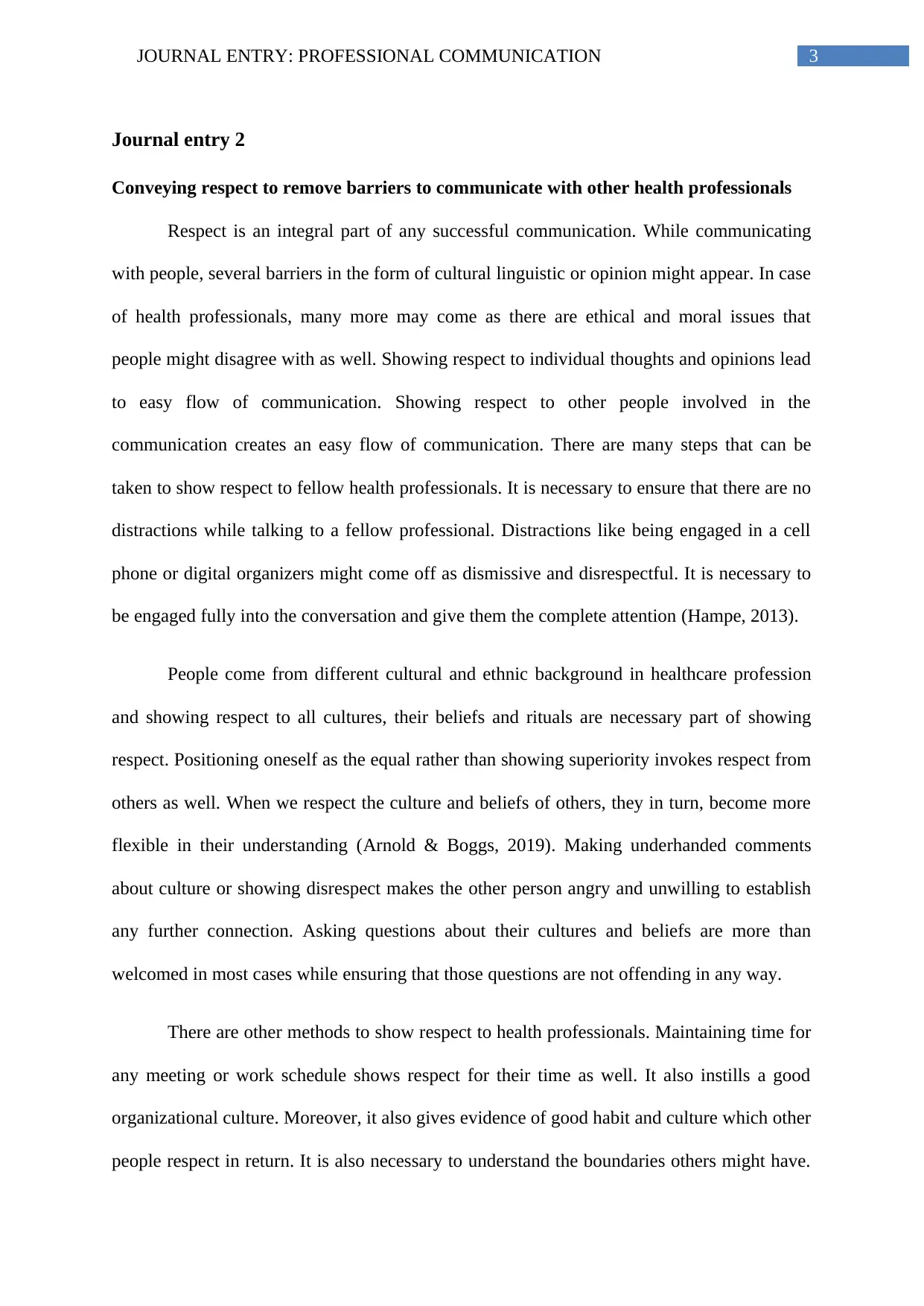
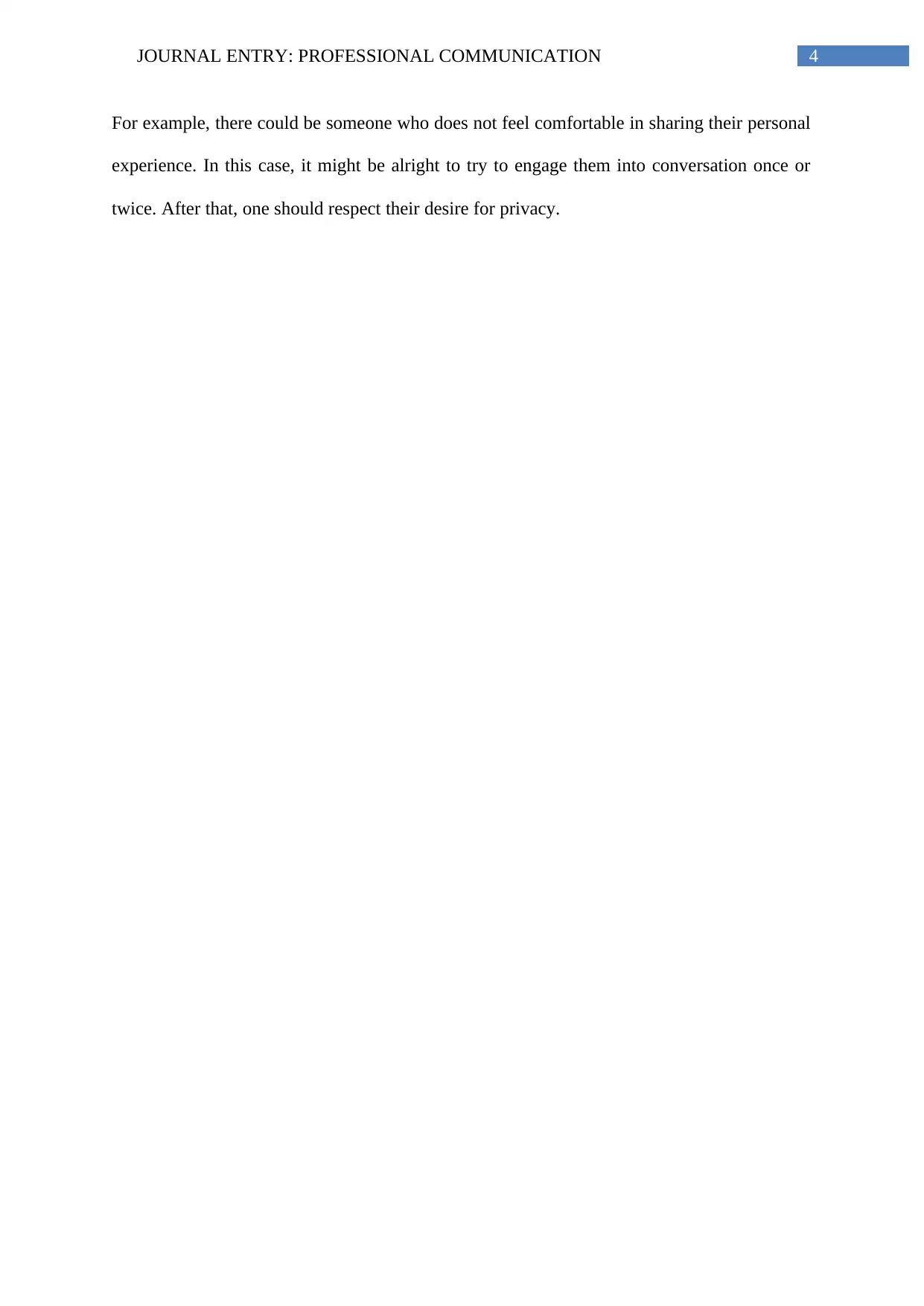
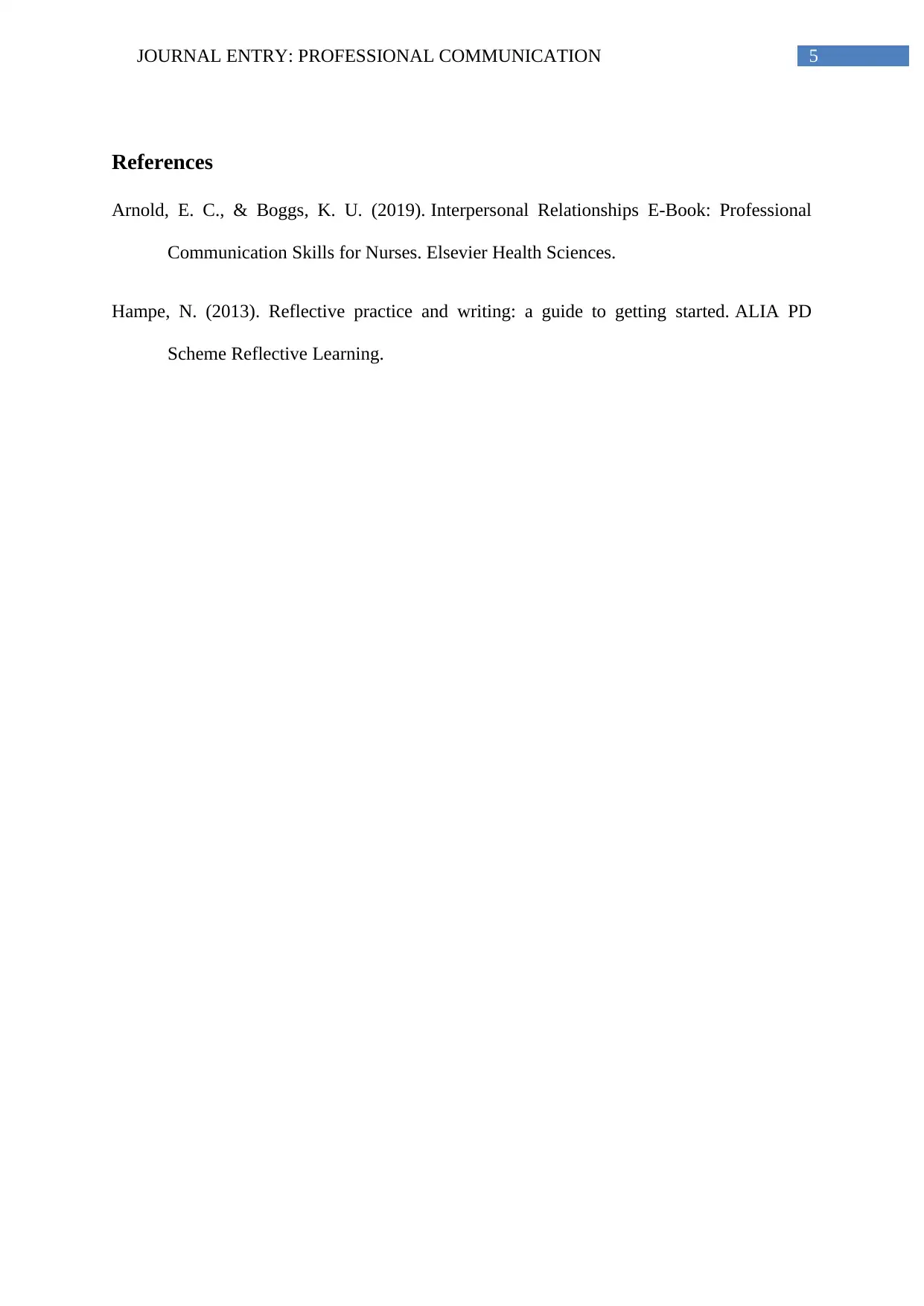




![[object Object]](/_next/static/media/star-bottom.7253800d.svg)